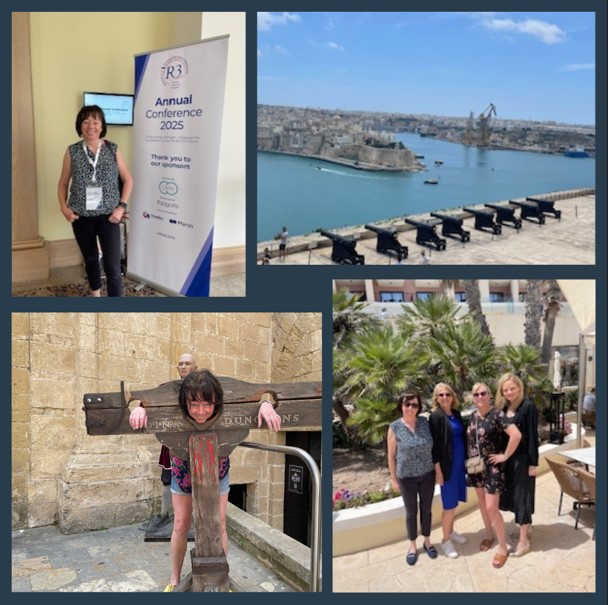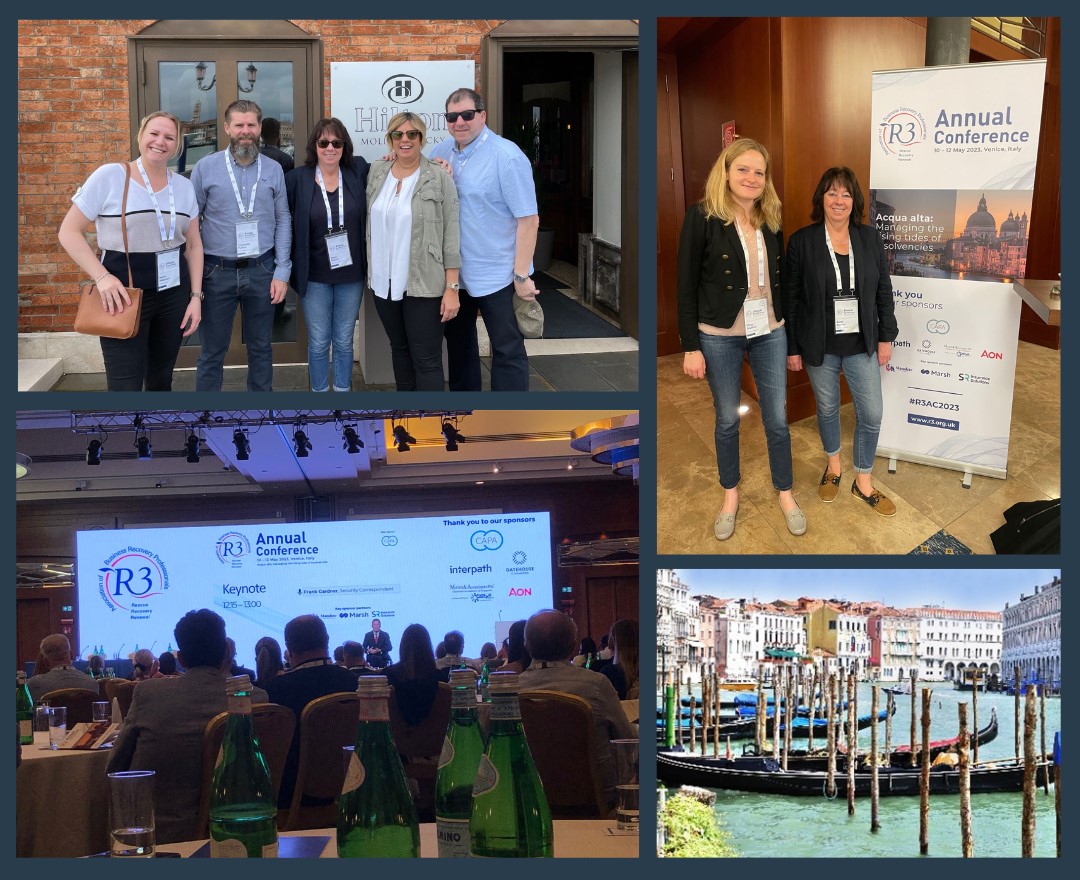20th January 2021 | Karen Dobson | Dispute Resolution
ICC Judge Prentis in the case of Darren Edwards (Trustee in Bankruptcy of Jagdev Singh Wasu) v Aurora Leasing Limited and Howard de Walden Estates Limited, in the High Court of Justice, Business and Property Courts of England and Wales,... Read more
ICC Judge Prentis in the case of Darren Edwards (Trustee in Bankruptcy of Jagdev Singh Wasu) v Aurora Leasing Limited and Howard de Walden Estates Limited, in the High Court of Justice, Business and Property Courts of England and Wales, Insolvency and Companies List (ChD), [2021] EWHC 96 (Ch), clarified the meaning of the words “for value” in the defence in Section 284 Insolvency Act 1986 (4) (a) to a claim to recover a void disposition.
Judgment was handed down on 20 January 2021.
Sherrards Solicitors LLP (Karen Dobson) were instructed on behalf of Aurora Leasing Limited (“Aurora”) and Charles Russell Speechlys LLP represented Howard de Walden. Both Sherrards and Charles Russell Speechlys jointly instructed Counsel, Anthony Beswetherick.
This decision gives a little bit of comfort to an innocent third party who deals inadvertently with an insolvent individual.
It provides clarification to the meaning of “for value” in the context of the defence provided for in section 284(4)(a) of the Insolvency Act 1986, where a third party receives any property or payment in good faith, for value and without notice, from an individual, between presentation of a bankruptcy petition and the bankruptcy order.
The Judge found that one must take section 284 on its own terms, and that the word “value” as set out in the defence provided for in section 284(4)(a) has no explicit qualification and that, provided the receipt was not gratuitous and that consideration was given, then “value” will have been provided.
Karen Dobson provides a summary below of the case which was brought by the Trustee against Aurora and the findings, which applied equally to Aurora and Howard De Walden.
The Facts
Jagdev Singh Wasu (“the Bankrupt”) was a dentist.
On 22 March 2013 HMRC presented a petition (“the Petition”) upon which he was subsequently adjudged bankrupt on 18 October 2013.
Aurora is an equipment lease financing company and its involvement related to the supply of equipment for use at an intended dental practice.
On 17 March 2013 Aurora received from a third-party broker a proposal for the financing of the acquisition of dental equipment for £233,100 plus VAT on behalf of Wasu Medical Centre, (“the Partnership”). The proposal stated that the Partnership, which already had a doctor’s surgery, was “Moving into Dental too and son will be managing the operations” The proposal further stated “Son will be running this new concern, whom is clearly adept at setting up new businesses and making them fly!”.
The Bankrupt was not a member of the Partnership which was between his parents, Dr Singh Wasu and Harmander Wasu.
On 22 March 2013, Aurora confirmed that it was prepared to offer finance, and set out its proposed terms. These were available for acceptance until 26 April 2013, and included:
a requirement that the Bankrupt and each of his parents offer a personal guarantee for the liabilities under the equipment lease; and
payment of an initial rental payment of £23,310 plus VAT before the equipment lease would be activated.
This offer was accepted by Dr Singh Wasu on behalf of Wasu Medical Centre on 26 March 2013.
On 19 April 2013 the Bankrupt, and each of his parents, signed a personal guarantee (“Guarantee”) in favour of Aurora ‘in consideration of [Aurora]entering into’ the equipment lease. By the Guarantee, the Bankrupt assumed liability as primary obligor and not just as surety for all sums due from time to time under the equipment lease. Dr Singh Wasu signed a copy the equipment lease on behalf of Wasu Medical Centre on the same day.
The Bankrupt made a payment by cheque dated 26 July 2013 to Aurora in the sum of £27,972 in respect of the initial rental payment. The cheque was cashed on 9 August 2013 and cleared on 14 August 2013. It is this payment which was the basis of the Trustee’s application against Aurora.
Aurora countersigned and activated the equipment lease (the “Equipment Lease”) two days later, on 16 August 2013.
Aurora subsequently paid a total of £279,720 to Hague Dental Supplies and the equipment was delivered in satisfaction of Aurora’s obligations under the Equipment Lease.
Aurora had no knowledge of the Petition until 30 May 2014.
The Partnership defaulted on the monthly rental payments under the Equipment Lease almost immediately. Aurora terminated the Equipment Lease on grounds of default and subsequently presented petitions against Dr Singh Wasu and Harmander Wasu, both of whom were adjudged bankrupt.
The Trustee’s claim was to recover the sum of £27,972 paid to Aurora by the Bankrupt in respect of the initial rental payment.
The Law
Section 284(1) of the Insolvency Act 1986 provides:-
“Where a person is made bankrupt, any disposition of property made by that person in the period to which this section applies is void except to the extent that it is or was made with the consent of the Court, or is or was subsequently ratified by the Court.”
Subsection (2) provides:-
“Subsection (1) applies to a payment (whether in cash or otherwise) as it applies to a disposition of property and, accordingly, where any payment is void by virtue of that subsection, the person paid shall hold the sum paid for the bankrupt as part of his estate”
Subsection (3) provides:-
“This section applies to the period beginning with the day of … the presentation of the bankruptcy petition and ending with the vesting, under Chapter IV of this part, of the bankrupt’s estate in the trustee.”
The case centred around subsection (4), which provides:-
“The preceding provisions of this section do not give a remedy against any person –
(a) in respect of any property or payment which he received before the commencement of the bankruptcy in good faith, for value and without notice that the … bankruptcy petition had been presented, or
(b) in respect of any interest in property which derives from an interest in respect of which there is, by virtue of this sub-section, no remedy.”
It was accepted by Aurora that the payment which it received was a disposition or payment within the meaning of section 284(1) or (2), made within the relevant period.
The Trustee accepted that, in receiving the payment, Aurora acted in good faith and without notice of the Petition.
The real issue which fell to be determined was the meaning of the words “for value” in section 284(4)(a).
It was the Trustee’s case that section 284(4)(a) involves consideration of direct value received by the bankrupt or, in the alternative, involves consideration of the value from the bankrupt’s point of view. The Trustee argued that Aurora had not provided value to the bankrupt; that no value was received into the bankruptcy estate as a result of the payment made to Aurora. Instead, the payment had the effect of denuding the bankruptcy estate without any countervailing benefit.
Anthony Beswetherick for Aurora and Howard De Walden argued that “value” means what it says; and section 284(4) is a long-standing and principled shield for innocent third parties.
ICC Judge Prentis stated that one must take section 284 on its own terms. He stated: “It is clear from its context that section 284(4)(a) is a protective section designed to avoid unfairness. It is not an exception to the principles which must therefore be given restricted ambit, but a defence which is part of the principles. It can therefore be construed in accordance with its terms.”
“As a defence, it bears obvious resemblance to that of equity’s darling, the bona fide purchaser of the legal estate for value without notice.”
He went on to find that: “There is no explicit qualification of the word ‘value’; all that is required is ‘property or payment which he received … for value. So, provided the receipt was not gratuitous, which it will not be where consideration was given, value will have been provided. Whether one should go on to align all aspects of value with its ordinary bona fide purchaser use, so excluding merely nominal value, is not necessary to my decision.
Nor is there any explicit requirement that the value be received by the estate rather than a third party. I do not find that surprising where what are being protected are the rights of innocent third parties, which rights have been generated through their dealings with the bankrupt.”
ICC Judge Prentis held that it is a defence which is strictly limited to its three elements. He stated that although the bona fides of Aurora had been conceded in the application, the meeting of it was not merely nominal; “it goes beyond mere personal honestly; it requires more than absence of dishonesty.”
The Judge found that Aurora provided the value which the Bankrupt intended by making the payment. In furtherance of his profession as a dentist the Bankrupt made the payment of £27,972 as the initial rent, which triggered Aurora’s purchase of the equipment and entry into the Equipment Lease.
The Trustee’s application as against Aurora was dismissed.
To find out more, click here to speak to Karen Dobson.



